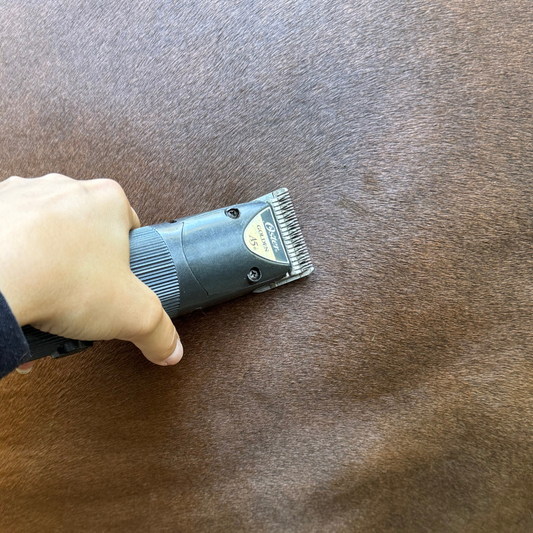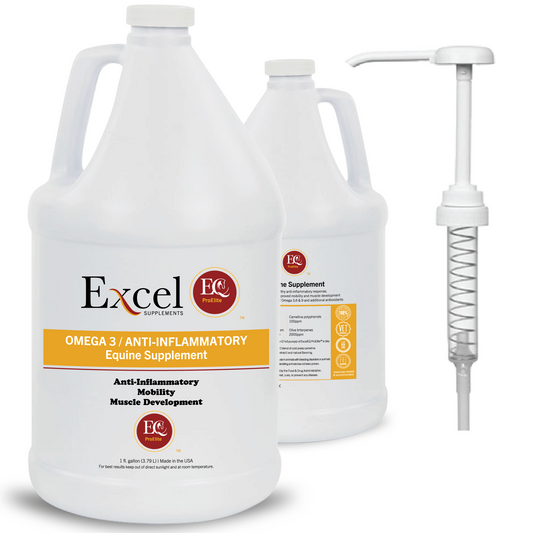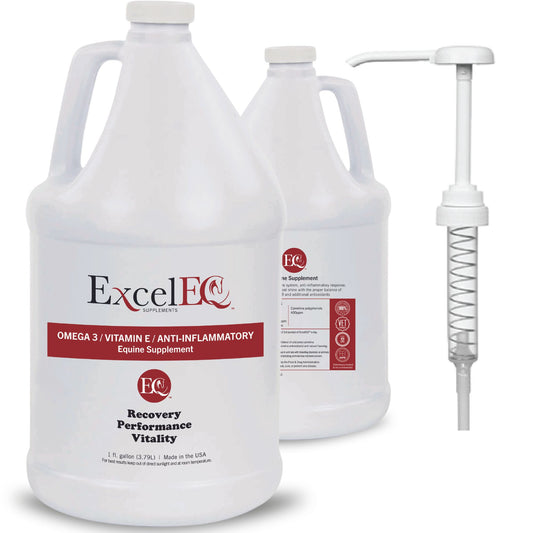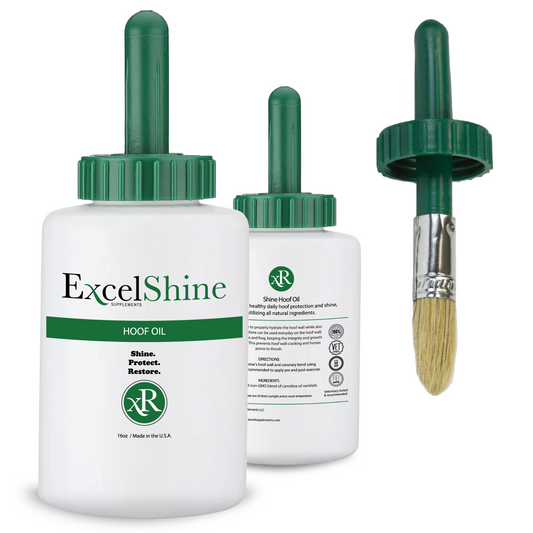Managing Equine Allergies with ExcelEQ Omega-3 Supplement
Share
As the warm weather approaches, farm life begins to shift into a new rhythm. Spring brings fresh opportunities for outdoor activities, including giving your horse a thorough spring grooming. However, with lush green fields and increased pollen, seasonal equine allergies become a common issue for many horses. Understanding your horse’s allergies, recognizing symptoms, and finding effective treatments can make a big difference in their comfort and health.
Understanding Equine Allergies
The Horse’s Immune System Response
When a horse encounters an allergen, its immune system activates as if fighting an infection. However, unlike a true pathogen, the allergen doesn't pose a real threat, which can lead to the immune system damaging healthy tissue. This hypersensitive reaction means that future encounters with the allergen could trigger an even stronger response.
The immune system releases antibodies known as immunoglobulins to combat perceived threats. These antibodies initiate an inflammatory response to neutralize the allergen. Additionally, histamines are released, contributing to inflammation and the visible symptoms of an allergic reaction.
Common Allergies in Horses
Seasonal Allergies and Symptoms
Hives
Hives are a common visual symptom of allergies. These appear as soft, swollen bumps on the horse’s body, which can range from small to large and may occur individually or in clusters. Hives can result from ingesting allergens, direct skin contact, or insect bites.

Respiratory Issues
Respiratory problems are a frequent sign of allergies in horses. The inflammatory response can narrow the nasal passages, reducing airflow and impacting your horse’s breathing. Addressing respiratory issues is crucial, as they can affect daily activities and performance. Persistent issues might also indicate chronic conditions like Heaves.

Swelling
Swelling, though less common than hives, can occur around areas like the eyes, ears, muzzle, or reproductive organs. This swelling is often caused by skin contact with allergens or insect bites, but ingestion of allergens can also lead to swelling.

Anaphylaxis
Anaphylaxis represents the most severe allergic reaction and usually occurs after repeated exposure to an allergen. It’s critical to seek immediate veterinary assistance if your horse shows symptoms of anaphylaxis, such as a dramatic drop in blood pressure and breathing difficulties. Treatment involves administering epinephrine and dexamethasone to manage the reaction and prevent shock.

Rashes and Itching
Rashes can be difficult to spot due to the horse’s coat, but they are more noticeable on horses with lighter skin. Itching is also a common reaction, particularly from insects like Culicoides gnats, which cause “sweet itch.” This condition results in crusty, itchy patches on areas like the belly and neck.

Treating Equine Allergies
Managing Mild Reactions
For mild allergic reactions, symptoms often resolve on their own. Seasonal allergies usually improve as pollen levels decrease. Topical treatments can soothe skin irritations, while dexamethasone may be prescribed to reduce inflammation. However, use steroids only under veterinary guidance to avoid complications like laminitis.
Veterinary Testing
In cases of severe or chronic allergies, a veterinary dermatologist can conduct allergy tests. These may involve injecting small amounts of allergens into the skin or performing blood tests to identify sensitivities. Allergy shots may be recommended for managing multiple or unavoidable allergens.
How Excel Supplements Can Help
One effective way to manage and prevent allergic reactions in horses is through supplements high in omega-3 fatty acids. Products like ExcelEQ and ExcelEQ ProElite are designed to support your horse’s natural anti-inflammatory responses. Regular use of these supplements can help maintain a balanced immune response and reduce the severity of allergic reactions throughout the year.






